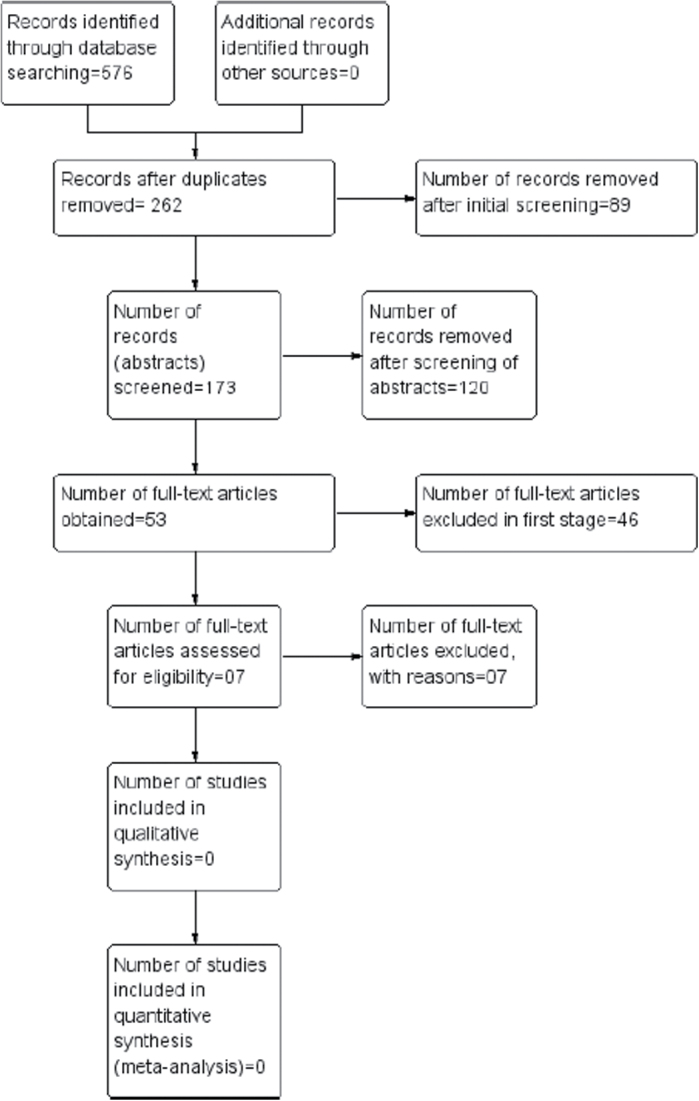Abstract
There is some evidence from research that suggests that cognitive behavioral therapy for psychosis (CBTp) might offer some advantage if offered in combination with pharmacological treatments for people with schizophrenia. There are, however, limitations in its provision due to available resource and training issues. Brief forms of CBTp might be an alternative in settings with limited resources. Brief therapies have shown to be as effective as standard therapies for some nonpsychotic disorders. There is some evidence in favor of brief CBTp. We wanted to review the effects of brief CBTp for people with schizophrenia compared with standard CBTp. We searched the Cochrane Schizophrenia Group’s Trials Register for randomized controlled trials (RCTs) involving adults with schizophrenia or related disorders, comparing brief cognitive behavioral therapy for people with psychosis vs standard CBTp. We found only 7 studies which used a brief version of CBTp, but no study compared brief CBTp with CBTp of standard duration. There is a need for RCTs which compare brief with standard CBTp. This review also highlighted the need for setting standard criteria for CBTp dose. For this review, we considered brief CBTp to be delivered within 4 months and using 6–10 sessions.
Key words: brief, cognitive therapy, schizophrenia, psychosis
Background
Cognitive behavioral therapy for people with schizophrenia is a psychotherapeutic approach that establishes links between thoughts, emotions, and behaviors and challenges dysfunctional thoughts. There is some evidence to suggest that cognitive behavioral therapy for people with psychosis (CBTp) might be an effective treatment for people with schizophrenia. There are, however, limitations in its provision due to available resource and training issues. One way to tackle this issue might be to offer a brief version of CBTp.
Objectives
To review the effects of brief CBTp (6–10 regular sessions given in less than 4 months and using a manual) for people with schizophrenia compared with standard CBTp (12–20 regular sessions given in 4–6 months and using a manual).
Search Methods
We searched the Cochrane Schizophrenia Group’s Trials Register (August 21, 2013). There are no language, date, document type, or publication status limitations for inclusion of records in the register. We inspected all references and contacted experts in the field regarding brief CBTp studies.
Selection Criteria
Randomized controlled trials involving adults with schizophrenia or related disorders, comparing brief CBTp vs standard CBTp.
Data Collection and Analysis
Two review authors independently screened and assessed studies for inclusion using pre-specified inclusion criteria.
Main Results
We found only 7 studies that used a brief version of CBTp, but no study compared brief CBTp with CBTp of standard duration. No studies could be included (figure 1).
Fig. 1.
PRISMA diagram.
Authors’ Conclusions
Currently there is no literature available to compare brief with standard CBTp for people with schizophrenia. We cannot, therefore, conclude whether brief CBTp is as effective, less effective, or even more effective than standard courses of the same therapy. This lack of evidence for brief CBTp has serious implications for research and practice. Well planned, conducted, and reported randomized trials are indicated. Details are published in the full review.1
Reference
- 1. Naeem F, Farooq S, Kingdon D. Cognitive behavioural therapy (brief versus standard duration) for schizophrenia. Cochrane Database Syst Rev. 2014;4:CD010646. 10.1002/14651858.CD010646.pub2 [DOI] [PubMed] [Google Scholar]



